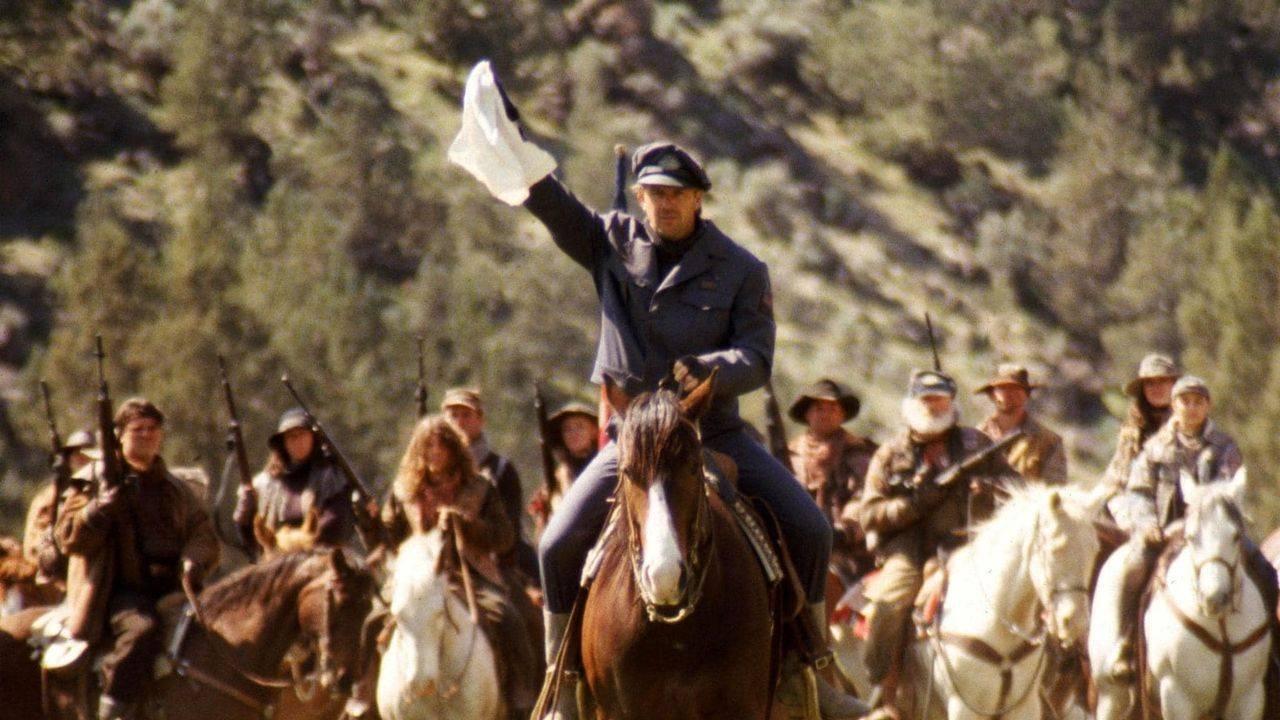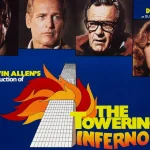The Postman (1997)

The Postman (1997) is an epic post-apocalyptic adventure film directed and produced by Kevin Costner, who also stars in the lead role. Based on the 1985 novel of the same name by David Brin, the film offers a vision of a bleak and shattered future, where society has collapsed, and the world is struggling to rebuild itself. The story centers around a lone drifter, Gordon, who stumbles upon a forgotten postal service uniform and becomes a symbol of hope for a broken world. The film combines action, adventure, and a deep exploration of human resilience and the need for connection.
The plot is set in the years following a devastating war that has destroyed the United States, leaving the country fragmented and lawless. Gordon (Kevin Costner) initially appears as a wandering survivor who is merely trying to get by in this harsh world. His encounter with a small group of survivors who believe in the idea of re-establishing the United States through the postal service becomes the catalyst for the larger journey. The idea of delivering mail, though simple, symbolizes the return of communication, hope, and structure in a world devoid of both.
The character of Gordon is complex and evolves throughout the film. At first, he is a man with little ambition or hope, living only for survival. However, as he is drawn into the mission of re-establishing the postal service, he begins to understand the significance of his actions. His transformation from a solitary wanderer to a symbol of unity is a central theme of the film. Through Gordon’s journey, The Postman explores the power of belief, leadership, and the desire to rebuild a lost civilization, even when the odds seem insurmountable.
The film also introduces a compelling antagonist, General Bethlehem (Will Patton), who represents the oppressive forces trying to maintain control over the remnants of the country. Bethlehem leads a tyrannical group called the Holnists, who use violence and intimidation to dominate other survivors. His ruthless tactics stand in stark contrast to the hope and ideals that Gordon embodies. This conflict between hope and tyranny is central to the narrative, driving the film’s emotional stakes.

Visually, The Postman is striking. The post-apocalyptic setting is beautifully crafted, with desolate landscapes and abandoned towns that paint a vivid picture of a world in ruin. The cinematography emphasizes the isolation and hopelessness of the characters while also highlighting moments of beauty and human connection. The use of the vast, empty landscapes enhances the film’s theme of survival in an unforgiving world.

Despite its strong themes and compelling visuals, The Postman received mixed reviews upon its release. Some critics praised its ambition and message of hope, while others felt that the pacing was slow, and the film lacked the emotional depth it needed. Nonetheless, the movie remains a notable exploration of post-apocalyptic storytelling, with a focus on redemption, hope, and the importance of human connection even in the darkest times. Kevin Costner’s performance and direction bring the story to life, making The Postman a thought-provoking, albeit divisive, cinematic experience.

In conclusion, The Postman (1997) is a thought-provoking and visually stunning film that explores themes of survival, hope, and the power of communication in a post-apocalyptic world. With Kevin Costner’s direction and lead performance, the movie offers a glimpse into the possibilities of rebuilding society after a collapse. Though it may not have been universally acclaimed, it remains a significant piece of post-apocalyptic cinema that continues to spark conversation about the resilience of the human spirit.











